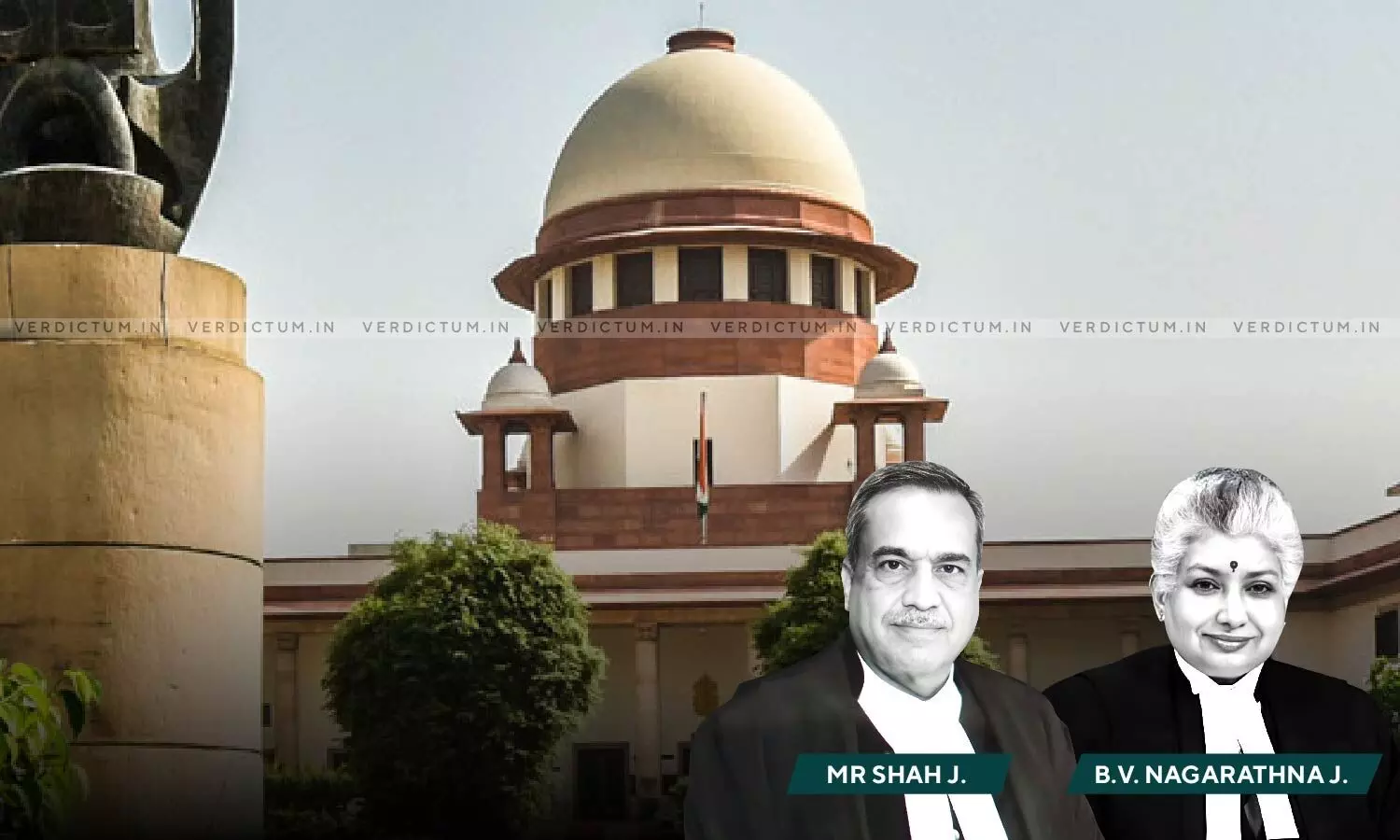
In Absence Of Specific Guideline Or Definition Of Land Grabbing Cases Powers Can Be Abused Being Arbitrary: SC Upholds HC’s Order
 |
|The Supreme Court has upheld the order of the High Court saying that it was rightly held and observed that in the absence of any specific guideline and/or definition of “land grabbing cases,” the powers can be abused or misused and the same are said to be exercised arbitrarily.
The two-Judge Bench of Justice M.R. Shah and Justice B.V. Nagarathna observed, “… it is rightly held and observed by the High Court that in absence of any specific guideline and/or definition of “land grabbing cases,” such powers can be abused or misused and such powers can be said to be exercised arbitrarily. Therefore, the High Court has rightly set aside G.O. No. 423 dated 28.07.2011 with liberty to the State Government to bring any appropriate legislation on the lines of A.P. Land Grabbing (Prohibition) Act, 1982 or better legislations after defining and/or providing the guidelines as to which offences can be said to be “land grabbing cases”.”
The Bench said that there is no need for any interference by the Apex Court in such a matter and the judgment of the High Court.
Advocate General R. Shunmugasundaram appeared for the State of Tamil Nadu while Senior Advocate R. Viduthalai appeared for the respondents.
In this case, the Madras High Court had allowed the pleas and quashed the Government Orders directing the transfer of the case from the Special Judicial Magistrate, Land Grabbing, Erode to the Judicial Magistrate-II, Erode. The State of Tamil Nadu had sanctioned the formation of 36 Anti Land Grabbing Special Cells with one cell each at the State Police Headquarters, 7 Commissionerates, and 28 Districts to deal with the Land Grabbing Cases in the State.
The land-grabbing cases were ordered to be transferred to the Special Courts which were constituted exclusively to deal with the said cases. Hence, such government orders were the subject matter of the writ petitions before the High Court.
The Supreme Court in the above context noted, “Insofar as the State of Tamil Nadu is concerned, it is an admitted position that there is no specific enactment and/or Act to deal with land grabbing cases, like Andhra Pradesh Land Grabbing (Prohibition) Act, 1982 and the Anti-Land Grabbing Special Cells have been formed by G.O. No. 423 dated 28.07.2011 to exclusively deal with the land grabbing cases. In absence of any guidelines and/or definition as to which cases can be said to be land grabbing cases, it gives unfettered and unguided and arbitrary powers to the police to treat any land case as a land grabbing case which will be investigated by the Anti-Land Grabbing Special Cell.”
The Court further noted that even a dispute between two private persons which may be under the Specific Relief Act and/or Transfer of Property Act may be considered a land-grabbing case.
“… if the State Government is so conscious and/or interested in taking action against land grabbers, it will be open for the State Government to bring an appropriate legislation with the clear definition of “land grabber” and “land grabbing” or better legislations with a clear definition of “land grabbing”, ”land grabber” and “land grabbing cases” and the present order shall not come in their way to enact such legislation and/or better legislations”, reiterated the Court.
Accordingly, the Court dismissed the appeals.
Cause Title- Government of Tamil Nadu & Others v. R. Thamaraiselvam Etc. Etc.